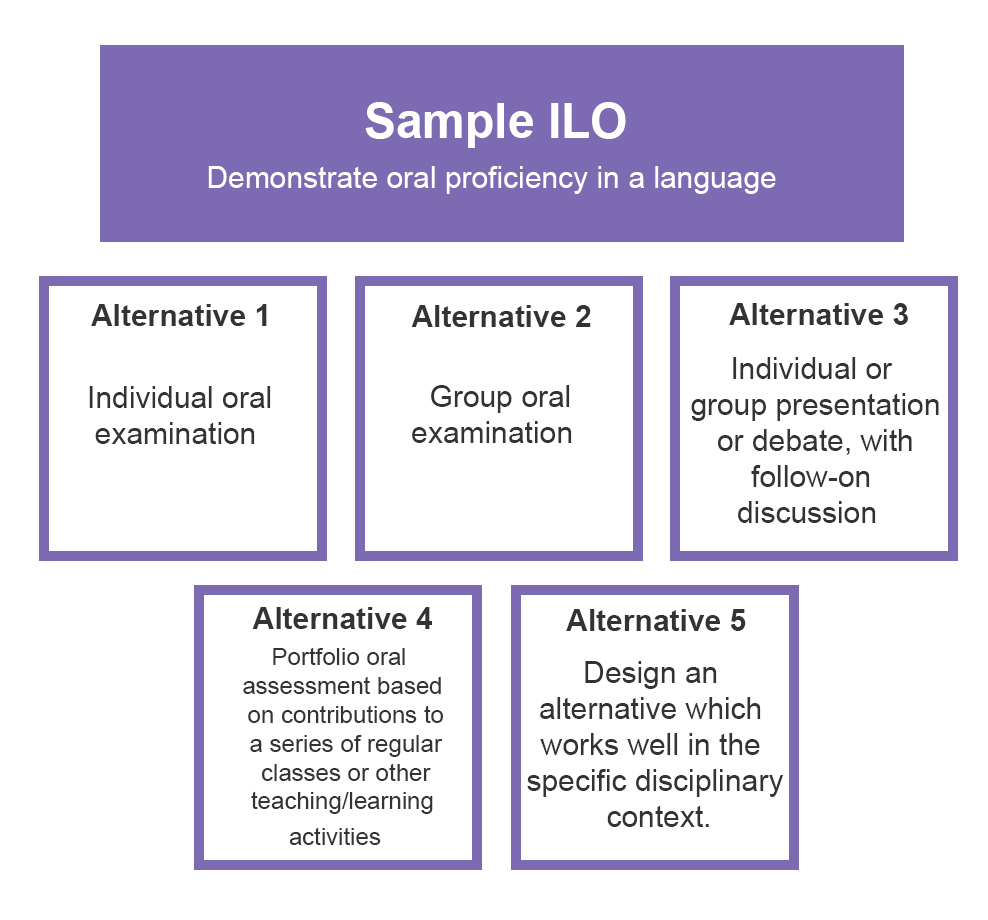Oral exams (taught degrees)

Commentary: In some disciplines, students will be expected to demonstrate oral proficiency – including the ability to respond spontaneously in discussion – as a distinct skill in ways that cannot be mitigated in the same way as presentations and similar tasks in other subject areas.
Supporting students: Students with speaking or hearing difficulties will need bespoke mitigations, and students with a variety of other disability impacts of other needs should be able to access the normal range of mitigations. Many students find oral exams particularly stressful, so allowing students agency to identify formats with which they feel more comfortable may be helpful. For instance, some students may prefer to be assessed in a group setting with other students; for others, this scenario may appear more stressful than a meeting with an examiner. Linking the assessment to another task over which the student feels greater control and for which they can prepare in a more targeted way may be helpful for some. Others may prefer a continuous assessment approach which avoids the sense of a high stakes final assessment. Any of these approaches should enable an assessment of the intended learning outcome.
Formative approaches: Clear advance information, and opportunities to practice in the same environment and space as the eventual assessment, are likely to relieve anxiety.
References and further advice:
- Donna Hurford, ‘DUT Guide: Strategies for criteria-aligned, fair and inclusive oral exams’, Dansk Universitetspædagogisk Tidsskrift (2020)
- Stammeringlaw, a site focused on supporting students who stammer or stutter, includes useful advice about ensuring that students with this disability impact can be well supported, and suggests some alternatives: University and college, including exams - Stammeringlaw - Disability discrimination
UCL Teaching Toolkits: Oral assessment (2019) - Oral assessment | Teaching & Learning - UCL – University College London
NB that separate advice is available about making vivas accessible for postgraduate research students. Many of the ideas here are also applicable to undergraduate students: Exam accommodations for disabled PGR students | Academic Quality and Policy Office | University of Bristol
